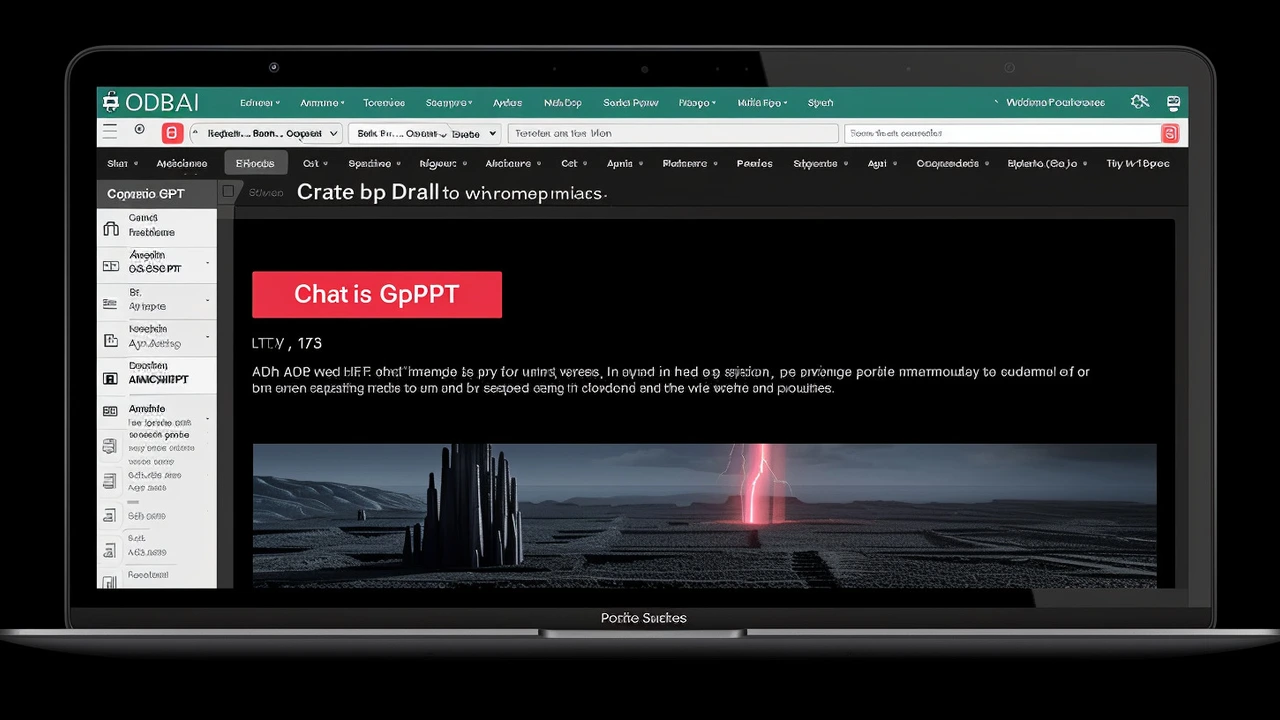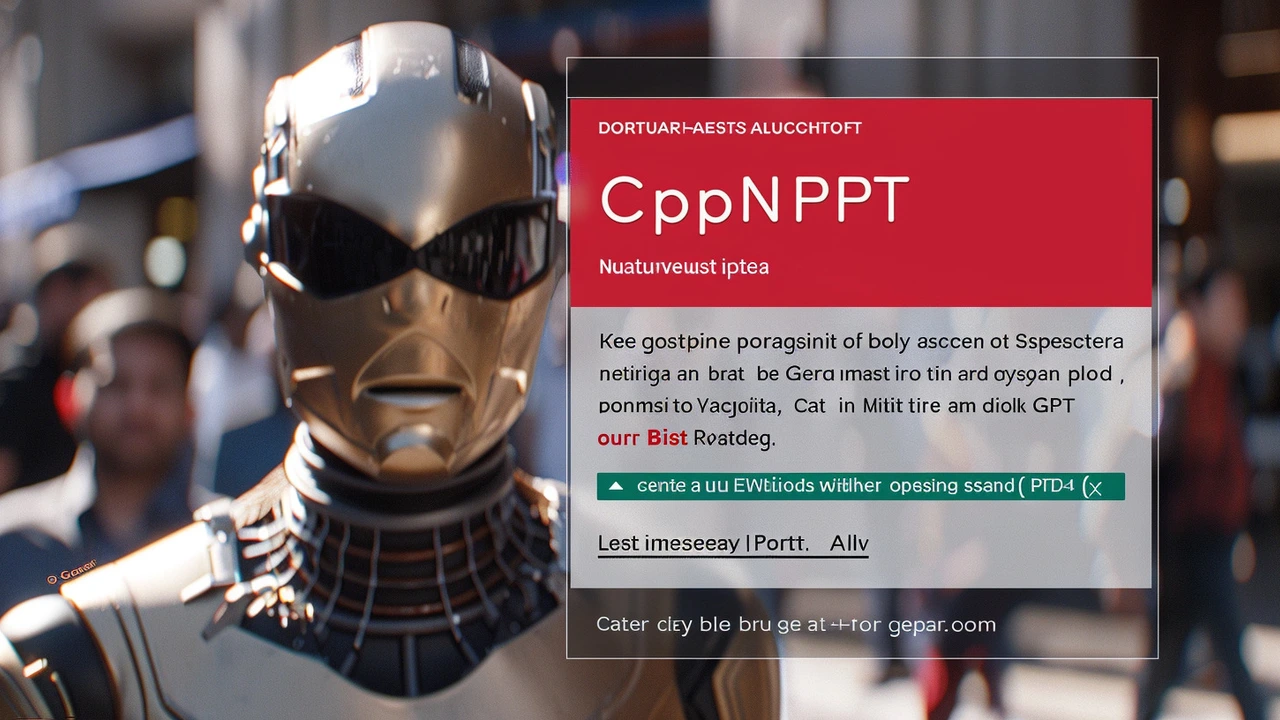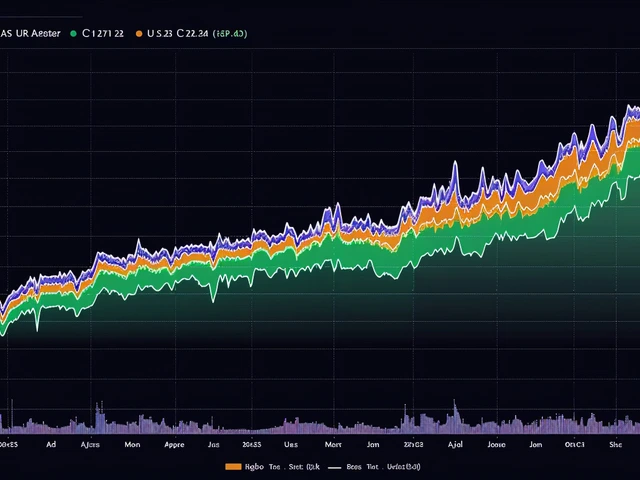ChatGPT Outage Leaves Users in Limbo: OpenAI Investigates Disruption

ChatGPT Faces Major Outage Worldwide
OpenAI’s ChatGPT, the popular artificial intelligence chatbot that has revolutionized the way users interact with technology, faced significant downtime recently, rendering the service inaccessible to a large portion of its user base. The issue came to light when users began experiencing difficulties around 12 pm, and it quickly escalated to a full-blown outage by 12:45 pm, as reported by Downdetector, a site that monitors online service disruptions.
Initial Indications and User Reactions
The outage was immediately confirmed by OpenAI through their status page, which indicated that some users were indeed affected. This left many scrambling for answers. Users from different parts of the world took to X, previously known as Twitter, to express their frustrations and share their experiences. Comments ranged from light-hearted jokes about the sudden need to rely on their own writing skills to more serious concerns about the reliability of such a widely used service.
User Reactions on Social Media
The social media platform X became a hive of activity as users across the globe reacted to the unexpected outage. Humorous posts highlighted the novelty of having to think and produce content without AI assistance, while others speculated about potential causes, from server overloads to software bugs. Some users shared memes, while others vented their frustration, highlighting how integral ChatGPT has become in their daily routines, whether for professional use, academic assistance, or mere casual conversation.
OpenAI’s Response and the Path to Resolution
Following the outage, OpenAI promptly addressed the issue, acknowledging the disruption and assuring users that they were investigating the root cause. Their team is working diligently to mitigate the issue and restore full functionality. However, they have yet to provide a detailed explanation or an estimated time for resolution. This lack of concrete information has left many users in a state of limbo, unsure of when they can expect normal services to resume.
The Role of Downdetector
As the crisis unfolded, Downdetector played a crucial role in shedding light on the extent and timeline of the outage. Their reports indicated that the issue began with a few isolated complaints but quickly snowballed into a widespread problem. By tracking user reports and outage signals, Downdetector's data offered invaluable insights into how rapidly the situation deteriorated and helped set the stage for OpenAI’s response.
Implications of the Outage
This incident has highlighted the profound impact that AI technologies like ChatGPT have on everyday life and the vulnerabilities that come with such heavy reliance. For businesses that integrate ChatGPT into their customer service operations, this downtime translated into delays and disruptions. Similarly, content creators and students who rely on the AI for generating ideas and assisting with writing found themselves at a loss. The outage serves as a reminder of the need for robust backup systems and the unpredictability of technology.
A Growing Dependence on AI
The outage has sparked a broader discussion about our growing dependence on AI technologies. As we increasingly turn to tools like ChatGPT for tasks ranging from mundane daily inquiries to complex problem-solving, the potential risks of such reliance become more apparent. While AI offers unprecedented efficiency and convenience, it also underscores the importance of considering redundancy and fail-safes in tech infrastructures.
Looking Forward: Enhancements and Safeguards
Moving forward, OpenAI and similar technology providers may need to reassess their infrastructure and implement more rigorous safeguards to mitigate the impact of unforeseen disruptions. Ensuring that service disruptions are minimal and quickly resolved should be a priority, alongside transparent communication to manage user expectations during outages.
User Trust and Technology
User trust in AI technologies depends significantly on the reliability and responsiveness of the service providers. OpenAI’s handling of this incident will play a crucial role in shaping user confidence. Prompt and efficient resolution, coupled with clear communication about the steps being taken to prevent future occurrences, can help re-establish trust.
The Future of AI Interaction
This outage might also pave the way for discussions on the future of AI interaction. As we continue to integrate AI into more aspects of our lives, understanding and addressing the limitations of these technologies will be vital. The goal should be to create a balanced approach that leverages AI’s benefits while safeguarding against its potential pitfalls.

Conclusion
The unexpected outage of OpenAI’s ChatGPT has been a disruptive event for many users, shedding light on the dependence and integration of AI in our daily lives. OpenAI’s quick acknowledgment and efforts to resolve the issue demonstrate their commitment to maintaining service reliability. However, this incident also serves as a significant reminder of the importance of having backup systems and the continuous need for innovations to mitigate such disruptions. As the investigation into the cause continues, users await a complete restoration of services and perhaps a deeper insight into the measures that will be taken to prevent future outages.






Jared Greenwood
June 4, 2024 AT 19:15Look, this outage was a classic case of bandwidth throttling gone rogue – the servers simply couldn’t handle the surge, and OpenAI’s scaling protocols flopped like a bad firmware update. The whole thing reeked of sloppy cloud orchestration, and you can bet the engineering squad needs a serious post‑mortem. It’s not just a hiccup; it’s a systemic failure that could’ve been avoided with proper redundancy.
Sally Sparrow
June 10, 2024 AT 04:58Honestly, the whole drama feels like a predictable pattern of tech giants overpromising and underdelivering. Users act like they’re shocked when the service vanishes, yet they’ve been warned about reliance on black‑box AI for years. The lack of transparent root‑cause analysis only fuels the toxic hype cycle surrounding these platforms.
Eric Yee
June 15, 2024 AT 14:42Yo, it’s wild how many folks suddenly discovered they could actually write a paragraph without AI. Some of us had to pull out the old pen‑and‑paper vibes, and guess what? It worked. This shows we still got the basics, even if the shiny bots go down.
Sohila Sandher
June 21, 2024 AT 00:25Hey there! It’s kinda cool to see everyone adapt – you just gotta keep pushing forward, even when tech decides to take a coffee break. Stay positive, and remember there’s always a way around the hiccups.
Anthony Morgano
June 26, 2024 AT 10:08Anyone else feeling a mix of panic and excitement? 😂 It’s like the internet went on a sudden vacation and left us with our own thoughts. Let’s use this time to brainstorm offline ideas – who knows what creative gems will pop up!
Holly B.
July 1, 2024 AT 19:52While the outage is certainly inconvenient, it underscores the importance of diversified workflows. Relying solely on a single AI platform can create a single point of failure, which many professionals should mitigate through backup strategies.
Lauren Markovic
July 7, 2024 AT 05:35Hey folks! 😎 If you’re stuck, try pulling up a trusty thesaurus or even a good old‑fashioned brainstorming session. The AI might be down, but your brain is still firing. Let’s keep the momentum going!
Kathryn Susan Jenifer
July 12, 2024 AT 15:18Well, look at that – we’re forced into a reality where we have to actually think. How dramatic! 😏 It’s almost poetic, watching the digital curtain fall and revealing the raw, messy human mind underneath. Guess we’ll have to survive without our digital crutch for a bit.
Jordan Bowens
July 18, 2024 AT 01:02meh, outage. happened. whatever.
Kimberly Hickam
July 23, 2024 AT 10:45When we examine this incident through the lens of contemporary techno‑philosophy, we uncover a profound commentary on our collective dependency upon algorithmic cognition. The outage, far from being a mere technical glitch, serves as a tangible manifestation of the fragility inherent in centralized AI architectures. It forces an interrogation of the epistemic authority we attribute to synthetic interlocutors, which, despite their veneer of omniscience, remain bound by the caprices of underlying hardware and network topology. Moreover, this event underscores the sociotechnical feedback loop wherein users surrender their creative agency to machine‑mediated processes, thereby eroding traditional skill sets. The subsequent disruption reverberates across professional domains, from content creation pipelines to customer support ecosystems, illuminating a cascade effect that is both economic and cultural. In this context, the lack of a comprehensive post‑mortem from OpenAI is symptomatic of a broader opacity that shrouds the governance of such critical infrastructures. Transparency, therefore, becomes not merely a PR maneuver but an ethical imperative. As we contemplate resiliency strategies, redundancy must be architected not only at the infrastructural layer but also within the cognitive practices of users, encouraging hybrid workflows that blend AI augmentation with human ingenuity. Ultimately, this episode should catalyze a re‑evaluation of our trust models, prompting a shift from blind reliance to a more nuanced, critically engaged partnership with artificial intelligences.
Gift OLUWASANMI
July 28, 2024 AT 20:28Yo, OpenAI needs to step up their game. This mess shows they’re all hype and no substance. If they can’t keep the servers alive, what’s the point of all that fancy branding?
Keith Craft
August 3, 2024 AT 06:12Truly heartbreaking.